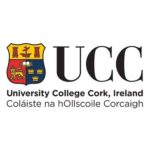Our interdisciplinary MSc in Dementia course provides healthcare professionals with the skills to expertly care for a person with dementia from diagnosis to end-of-life. We advocate a biopsychosocial approach in this course, meaning that we look at the body, mind and environment and consider how they are all connected. Our course content reflects this approach.
The topics on this course include dementia presentations and assessments; restorative and adaptive cognitive and non-cognitive interventions; a strong focus on communication, ethical approaches and care planning; translation of evidence to clinical practice; and reflection on legislative, policy and societal influences on dementia care across health and social care settings.
This programme can be studied full-time or part-time. A range of optional modules allows a student to tailor their learning to their own setting and role and includes an optional clinical placement module. Optional independent study modules provide for skill-development opportunities, allowing a student to undertake an in-depth literature review, a supervised audit, service evaluation or a quality improvement project, or to develop a business case or implementation plan. At all times the emphasis is on the critical appraisal of research evidence, and knowledge of current policy and societal influences, and how these translate into the best possible care for the person with dementia in real-world settings.
Content Overview
Students take taught modules to the value of 60 credits incorporating approximately 300 hours of structured contact time via face-to-face, webinars, or online options. Most classes are held in two-day blocks (weekdays). Students also undertake a research dissertation (30 credits) which is submitted at the end of the calendar year.
Core Modules
Students take core modules to the value of 35 credits as follows:
- CG6015 Understanding Cognitive Disorders and Dementia (10 credits)
- CG6016 Advanced Issues in Dementia Care (10 credits)
- CG6017 Clinical Practicum in Dementia (5 credits)
And either
- EH6038 Applied Research for Gerontology and Rehabilitation (10 credits) Or
- MH6014 Advanced Research Methods for Healthcare Professionals (10 credits)
Elective Modules
Students take elective modules to the value of 25 credits from the following:
- CG6002 Stroke Rehabilitation (10 credits)
- CG6006 Falls, Mobility and Movement Disorders (10 credits)
- CG6007 Independent Study (5 credits)*
- CG6011 In-depth Independent Study (15 credits)*
- CG6012 Neuromuscular Disorders (10 credits)
- IP5001 Holistic Approach to Palliative Care (5 credits)**
- MH6016 Advance Care Planning (5 credits)
- NU6053 Ethics for Specialist Practice (5 credits)
*Students can take either CG6007 or CG6011 but not both.
** Can only be selected if the student has active registration or is eligible for registration with the appropriate professional healthcare registration body.
Research Module
- CG6018 Dissertation in Dementia (30 credits)
Exemptions at the Point of Entry to the MSc Programme
- Following successful completion of the examinations for the Postgraduate Certificate in Dementia, a student may opt to transfer to the MSc in Dementia, subject to the approval of the Programme Team, with exemptions granted for modules taken within the previous five years.
- A student previously graduated with the Postgraduate Certificate in Dementia, within five years of completion, and subject to the approval of the Programme Team, may register for the MSc in Dementia, with exemptions granted for modules taken within the previous five years.
- A student previously graduated with the Postgraduate Diploma in Dementia (exit award), within five years of completion, may re-register for the MSc in Dementia, subject to the approval of the Programme Team, with exemptions granted for modules taken within the previous five years.
The above options do not require a new separate application by the student. Preliminary requests should be made to the Programme Administrator, Ms Lorraine Crossan.
- Recognition of Prior Learning (RPL): a student who has successfully completed modules for Continuous Professional Development (CPD) within the MSc in Dementia programme, and/or has completed relevant university postgraduate modules in a cognate area at a similar NFQ level (subject to the approval of the Programme Team), and who meets the entry requirements for the MSc in Dementia, can apply to register for the MSc in Dementia with exemptions granted for modules taken within the previous five years. This will require a separate by the student for the MSc.
- Please note that part-time study is not open to non-EU candidates.
Academic Programme Catalogue
See the Academic Programme Catalogue where you can search for the complete and up-to-date content for this course. Note that the modules for all courses are subject to change from year to year. For complete descriptions of individual modules, see the Book of Modules.
Course Practicalities
The MSc in Dementia is a blended learning programme, with some content provided online or via evening webinars, and augmented by face-to-face lectures, tutorials, workshops and case-based learning. Workshops focus on peer learning and skills practice (e.g. communication skills, capacity assessment, critical appraisal).
Students take taught modules to the value of 60 credits incorporating approximately 300 total hours of structured contact time. Most classes are held in two-day blocks during weekdays. In addition to the structured contact time, students perform approximately 900 hours of self-directed learning, submitting module assignments and reports. Students also undertake a research dissertation (30 credits) which is submitted at the end of the calendar year (full-time students) or at the end of the second academic year (part-time students). The research possibilities are broad including quantitative, qualitative, and mixed methodologies.
Course Website
( https://www.ucc.ie/en/ckx21/ )

